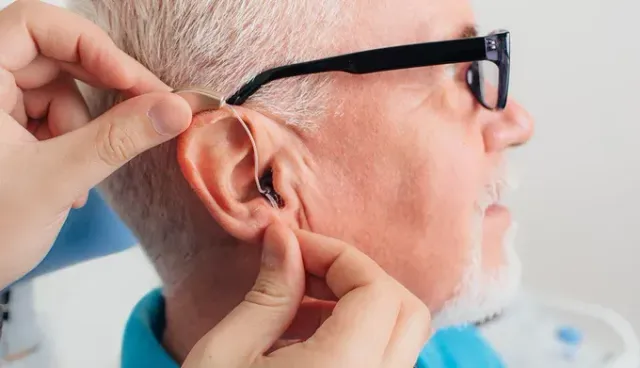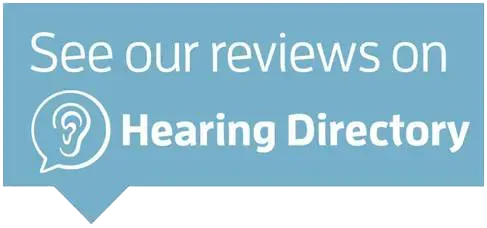The Science of Your Hearing
Central Alberta’s leader in hearing rehabilitation and technology
Red Deer: +14033466414
Olds: +14035566402



Getting The Most Out Of Your Hearing Aids?
Learn what really matters when selecting hearing aids. Straight from trusted audiologists.
2 Locations
Red Deer
Creekside Professional Centre
104-4320 50 Ave, Red Deer, Alberta
T4N 3Z6
Olds
#103 - 6501 51 Street, Olds, Alberta
T4H 1Y6
Explore how HearWell supports your hearing health from every angle.
Optimize Your Hearing
Our rehabilitative approach aims to improve your quality of life. We’ll guide and support you throughout your hearing journey.
See if hearing aids work for you
Take a pair of hearing aids home and try them in your daily routine. HearWell will make sure you’re a good match for hearing aids.
Let science guide your decisions
Our recommendations are based on the results of your hearing tests and the latest in audiology research, so you can make confident decisions.
Try before you buy.
We encourage everyone to try hearing aids before they purchase. At-home trials are vital to HearWell’s approach.
Not only does this help us match the best technology to your hearing challenges, but it ensures that hearing aids can be an effective solution for you.
100's of patients helps in the Red Deer and Old's area
Brilliant, knowledgable service. Dedicated to finding best solution for you, your budget included. Patient and dedicated and work to tailor your hearing aids. Highly recommend.
My son well very well taken care of and dealt with amazing patience. He has had sudden hearing loss and has been pretty frustrated. It was nice to have him treated so well.
Care, attention and service. Hearing aids are devices that require support (wish they didn't ) Hearwell supports (glad they do).
They are very awesome people helpful with every need thank you all ☺️☺️
Clinical excellence and dedicated care
Many hearing clinics simply focus on selling devices and moving on to the next sale.
HearWell focuses on proper selection of a hearing solution and ongoing care – so you can optimize your hearing.
Common questions we receive
When should I have my hearing checked?
The answer for most people seems to be, “when I’m ready for hearing aids.” The truth is though, that hearing should be checked regularly and throughout life. We should treat our ears and hearing the same way we treat our eyes or teeth. In that same respect, through regular checks, we can prevent the loss of communication, relationships, career performance, confidence, etc.
How Do I Know If Something has changes with my hearing
Most patients think that a reduction in hearing is obvious and they would know, just as if someone had turned down the volume on the TV. It’s easy to think that if you hear SOME things, you must hear ALL things. The truth is though that most changes in hearing are slow and sneaky. Some parts of speech are lost easier than others.
Most clients say something like, “I heard you, I just didn’t understand you.” That symptom is indicative of some degree of hearing loss in some part of the ear. The truthful answer to this question is unless you’ve had it checked, you can’t know how well you hear.
Who uses hearing aids and do I need them?
The answer we all tell ourselves is that hearing aids are for the elderly or the desperate, (i.e. certainly not me). The truth? Potentially anyone who hears well may be wearing hearing technology. If we see someone who can see well and doesn’t wear glasses, does that mean they aren’t using technology (i.e contact lenses)? The
average age of the first time hearing aid user is decreasing. More patients are able to perform better in their careers and participate more actively in their lives through the use of hearing technology.
When should I use hearing technology?
Much like the answers above, many of us will tell ourselves we will when we are old enough, deaf enough or desperate enough. So, ideally, never!
We are talking ourselves out of a better quality of life. The truthful answer is we should use hearing technology when the situation demands it to be ourselves. Proper prescription and fitting of hearing technology allows us to CONTINUE to be ourselves and engage in life the way we want to. We shouldn’t think of adopting hearing technology as a means of correcting a problem, but rather maintaining the lifestyle we currently enjoy before it becomes a problem.
Red Deer
104-4320 50 Ave
Red Deer, Alberta
T4N 3Z6
Tuesday: 9 a.m. – 5 p.m.
Wednesday: 9 a.m. – 5 p.m.
Thursday: 9 a.m. – 5 p.m.
Friday: 9 a.m. – 5 p.m.
Saturday: Closed
Sunday: Closed
Olds
Tuesday: 9 a.m.–4:30 p.m.
Wednesday: 9 a.m.–4:30 p.m.
Thursday: 9 a.m.–4:30 p.m.
Friday: Closed
Saturday - Sunday: Closed
Request Your Appointment
Even if you haven’t visited HearWell before, send us your questions about your hearing or technology. We’ll explain the science so you can make a better decision.


